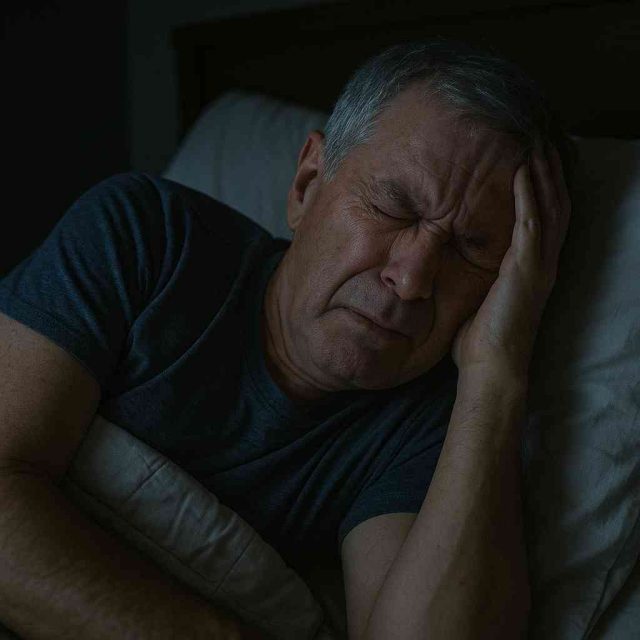Living with chronic pain can make getting a good night’s sleep feel impossible. At the same time, lack of sleep often worsens pain, creating a frustrating cycle that impacts both physical and mental health. Understanding the link between chronic pain and sleep disorders is key to breaking this cycle. With the right strategies, people can improve rest, reduce discomfort, and enhance overall quality of life.
Table of Contents
- The Link Between Chronic Pain and Sleep
- Common Sleep Disorders Associated With Pain
- Strategies for Improving Sleep Quality
- Pain Management Approaches That Help
- When to Seek Professional Support
- Conclusion
- FAQs
The Link Between Chronic Pain and Sleep
Research shows that chronic pain and sleep have a two-way relationship. Pain makes it harder to fall asleep and stay asleep, while poor sleep reduces pain tolerance and increases inflammation. This can lead to insomnia, restless nights, and daytime fatigue, making pain management even more challenging.
Common Sleep Disorders Associated With Pain
Several sleep disorders are often linked to chronic pain, including:
- Insomnia: Difficulty falling or staying asleep due to discomfort.
- Sleep apnea: Interrupted breathing that worsens fatigue and pain sensitivity.
- Restless legs syndrome: Uncomfortable sensations in the legs that disrupt sleep.
Identifying and addressing these sleep disorders can significantly improve pain management outcomes.
Strategies for Improving Sleep Quality
Healthy sleep habits can make a major difference for people with chronic pain. Effective strategies include:
- Establishing a consistent sleep routine with regular bed and wake times.
- Creating a sleep-friendly environment with minimal noise, darkness, and comfortable bedding.
- Practicing relaxation techniques such as meditation or deep breathing before bed.
- Limiting caffeine, alcohol, and screen time in the evening.
In some cases, cognitive behavioral therapy for insomnia (CBT-I) is recommended to retrain the brain and body for better sleep.
Pain Management Approaches That Help
Managing chronic pain effectively also improves sleep. Common approaches include:
- Medication: Pain relievers or muscle relaxants prescribed by doctors.
- Physical therapy: Gentle exercises and stretches to ease tension and improve mobility.
- Heat and cold therapy: Applying warm packs or ice to relieve discomfort.
- Mind-body techniques: Yoga, mindfulness, and guided imagery reduce both stress and pain.
When to Seek Professional Support
If sleep problems persist despite lifestyle changes, it’s important to consult a healthcare provider. A sleep specialist or pain management doctor can recommend personalized treatments, including sleep studies, advanced therapies, or medication adjustments.
Reliable resources like Healthcare.pro and HealingWell Top Articles provide further guidance and community support for those managing chronic pain and sleep issues.
Conclusion
Chronic pain and sleep disorders are deeply connected, but they don’t have to control your life. By improving sleep hygiene, exploring pain relief strategies, and seeking professional guidance, individuals can find rest and regain quality of life.
FAQs
How does poor sleep affect chronic pain?
Insufficient sleep lowers pain tolerance, increases inflammation, and makes chronic pain feel worse.
What sleep disorders are common with chronic pain?
Insomnia, sleep apnea, and restless legs syndrome are often linked to chronic pain conditions.
Can improving sleep reduce pain levels?
Yes. Better sleep helps the body repair itself, reduces stress hormones, and increases pain resilience.
Should I take medication for sleep and pain?
Only under a doctor’s guidance. Some medications help both sleep and pain but should be closely monitored.
When should I see a doctor?
If pain and sleep issues interfere with daily life despite lifestyle changes, consult a healthcare provider.
This content is not medical advice. For any health issues, always consult a healthcare professional. In an emergency, call 911 or your local emergency services.




